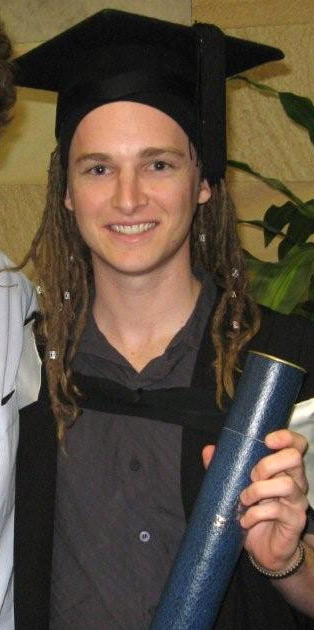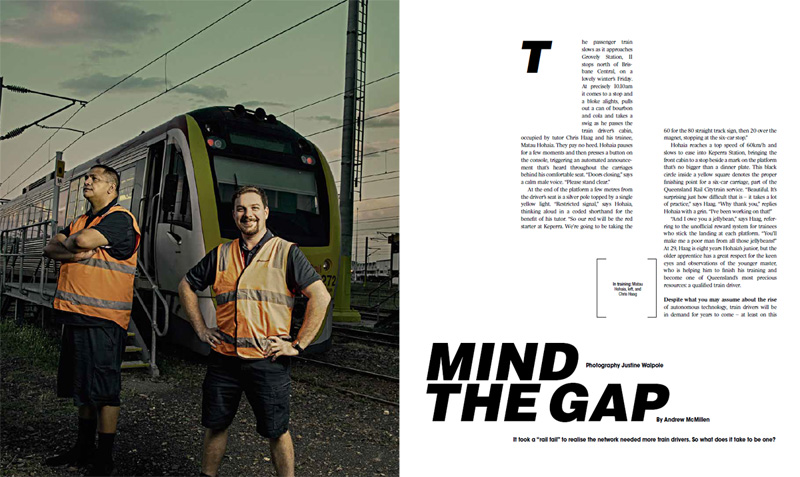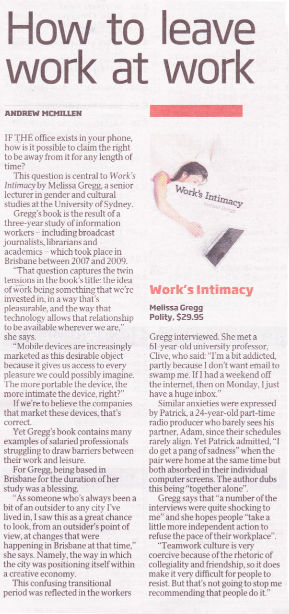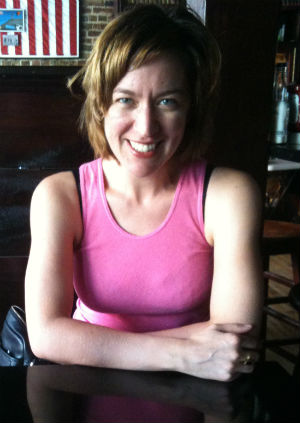Is it arrogant for me to state that my Bachelor Of Communication is worthless? Probably.
Aside from being a physical reminder of my ability to (somewhat) focus on a goal for three-plus years, a degree is only useful if a potential employer needs to check that box before hiring me. Since I don’t see myself applying for a job that requires a résumé ever again, can you see why I feel this way?
Andrew McMillen became Andrew McMillen, BComm on July 24 2009. An old dude who speak at the ceremony said to my fellow graduands something along the lines of: “Having invested years of your life studying here at the University Of Queensland, you understand that a university education is more than simply attending lectures and handing in assignments.”
Cue sniggers, because that’s exactly what I found my university education to be: a matter of attending lectures and handing in assignments. Essentially, doing enough to pass, without extending myself.
Why didn’t I extend myself? A good question. The old dude was hinting that a university education is what you make of it. There was a whole lot of extracurricular bullshit like networking, volunteering and university politics that absolutely didn’t interest me. So I opted to show up to class occasionally, hand in assignments, and do enough to pass.
I suppose I always felt that studying Communication was a waste of my time. The cute summary of the program I give to people is that Communication is half journalism, half media studies. And entirely rooted in events that happened decades ago; practices that were established centuries ago.
Why didn’t I quit? Another good question. I’ve made it clear that I don’t value the certificate that’ll sit in my closet for eternity. I guess I took the easy way out by sticking to what I’d started, rather than course-correcting from what I constantly felt was a misguided pathway. Call it parental pressure, call it social expectation; my boss last year told me I’d be fired if didn’t finish the degree. Another example of me not wanting to rock the boat, not wanting to cause a scene, not wanting to stray from the presupposed outcome I’ve allowed others to dictate since high school, even while feeling nothing toward the journey itself.
As I write this, I feel a misguided arrogance tickling the edge of my consciousness. It prompts me to spout something like: “Almost everything I was instructed to learn and understand throughout my degree was written at a time before the internet! Newspapers are dying, traditional journalists are displaced! The internet changed everything! That a university education is valuable is a fucking fallacy!”
That’s my irrational response to this discussion. I’ve attempted to curtail it many times, both psychologically and in conversation, but it still tends to rear its head. I know there are a thousand arguments against what I just wrote; entertain me with them if you wish.
I won’t pretend to empathise with my fellow graduates, Communication or otherwise. But as I sat among the hundreds, I thought thoughts like:
- How many of them feel entitled to the certificate they’re about to receive?
- How many of them feel that they deserve to walk right into a job, a career, simply because they passed classes for a couple of years?
- How many of them are prepared for the world in which we live – one that values the sharing of ideas rather than the submission of formulaic assignments that fit into predetermined criteria?
- How many are going to proudly call themselves ‘professional communicators’ for the rest of their lives, without irony?
- How many are going to fail to realise how sad it is to self-define by a Bachelor/Doctorate/Master ‘of’?
- How many of them blog?
I’d like to think that I’m being realistic, here, expressing these sentiments. Refusing to accept that life is as easy as the steps set out by the people who run the business of tertiary education: study, degree, career, happiness, death.

I’d like to think that I’m being honest with myself, and that I’m achieving something by sharing my feelings of discontent.
I’d like to think that I’m being pragmatic by shrugging off congratulations; the myth that completing a degree is worthy of recognition.
But it’s probably pretty clear that my assertions are filled with contradictions, hypocrisy and half-truths. I’m not looking for reassurance. I know where I want to be and who I want to represent, and I know that I didn’t need a certificate to signify either.
Maybe I’m alone on this among my peers, but I’d hope not. It’d make things a lot easier for me were they that delusional, but mostly I’d just pity them.
Kind of ironic that the graduation ceremony’s guest speaker, ABC reporter and journalist Chris Masters – whose speech greatly inspired and motivated me – has been awarded honorary doctorates and degrees, but chose to never set foot within a university.
It’s not all bad. My time at university prompted me to write the first post on this site, in May 2008. That single decision – inspired by frustration and helplessness – pointed me in what felt like the right direction. Namely, far from sandstone hallways and dull classrooms.
Thanks for boring me into action, University Of Queensland! IOU $16,306.


 Similar anxieties were expressed by Patrick, a 24-year old part-time radio producer who barely sees his partner, Adam, since their schedules rarely align. Yet Patrick admitted “I do get a pang of sadness” when the pair were home at the same time, but both absorbed in their individual computer screens. The author dubs this being ‘together alone’.
Similar anxieties were expressed by Patrick, a 24-year old part-time radio producer who barely sees his partner, Adam, since their schedules rarely align. Yet Patrick admitted “I do get a pang of sadness” when the pair were home at the same time, but both absorbed in their individual computer screens. The author dubs this being ‘together alone’.